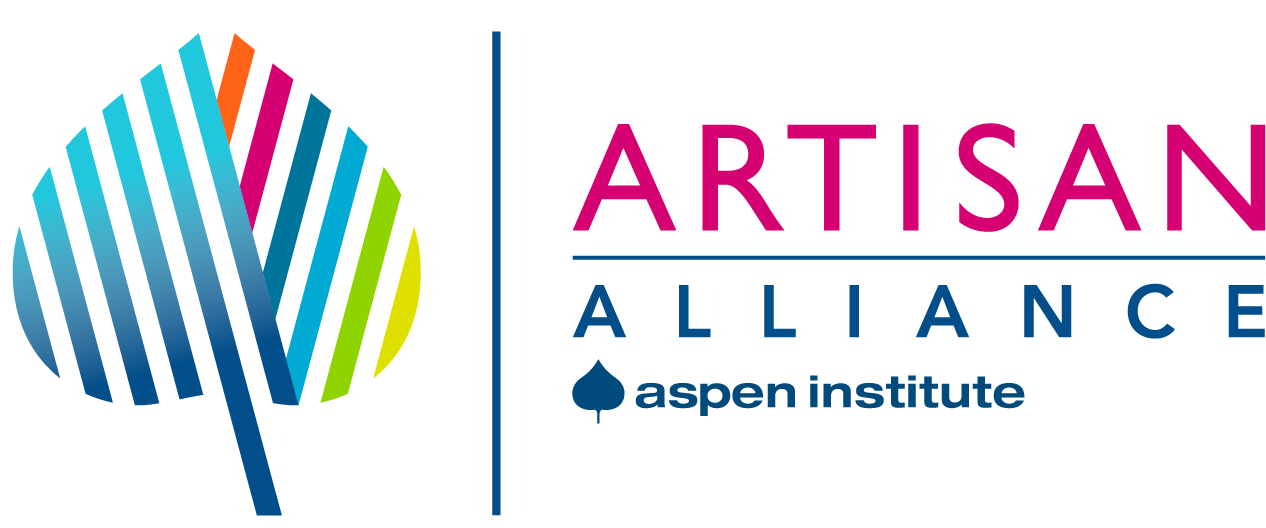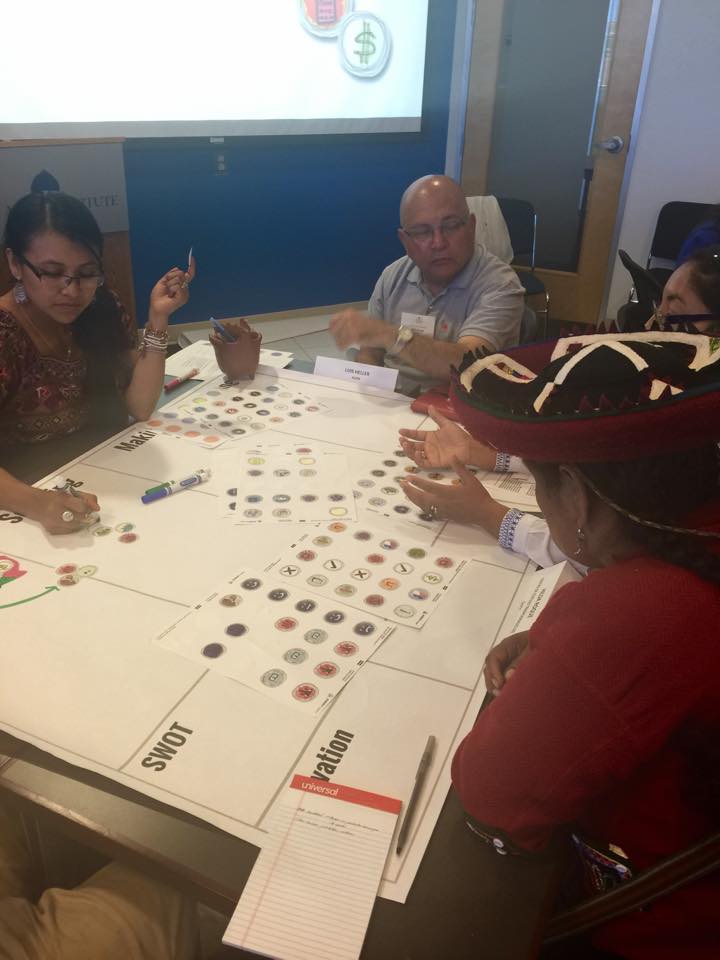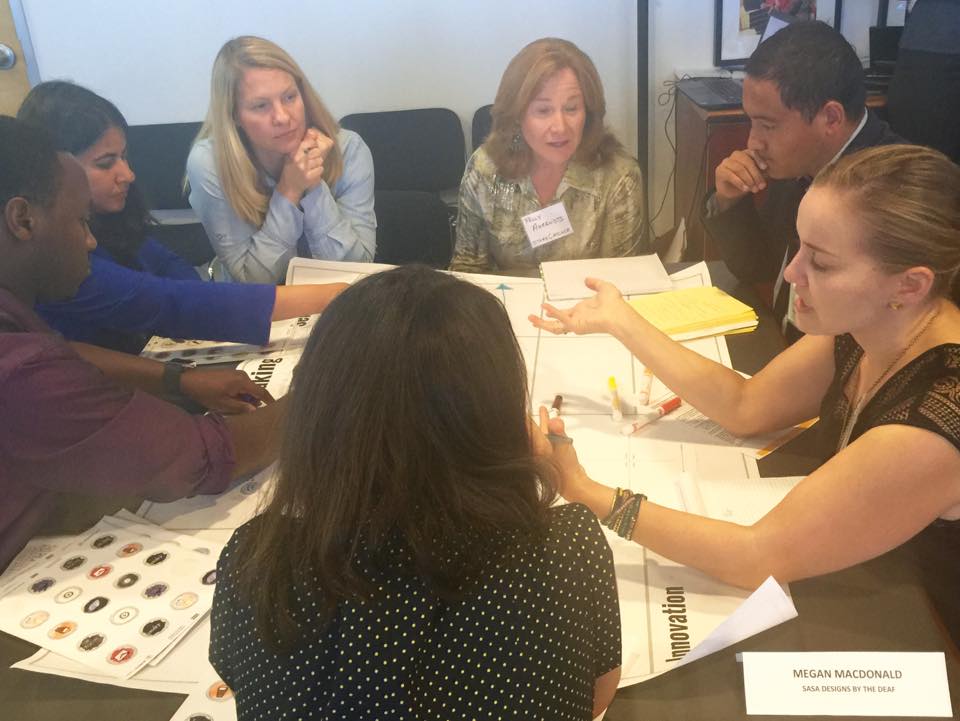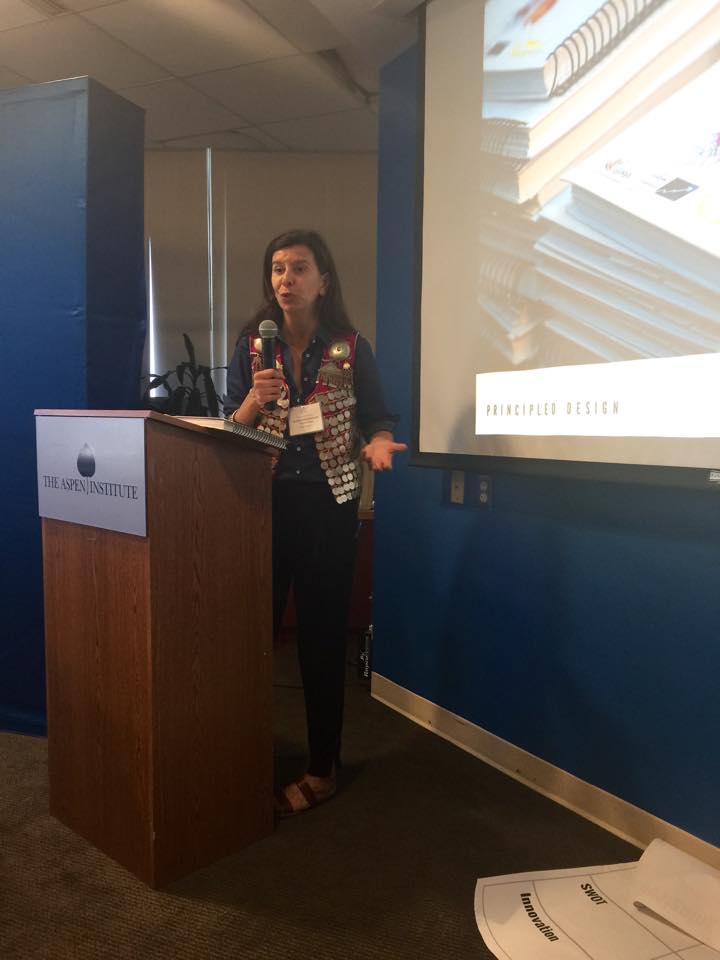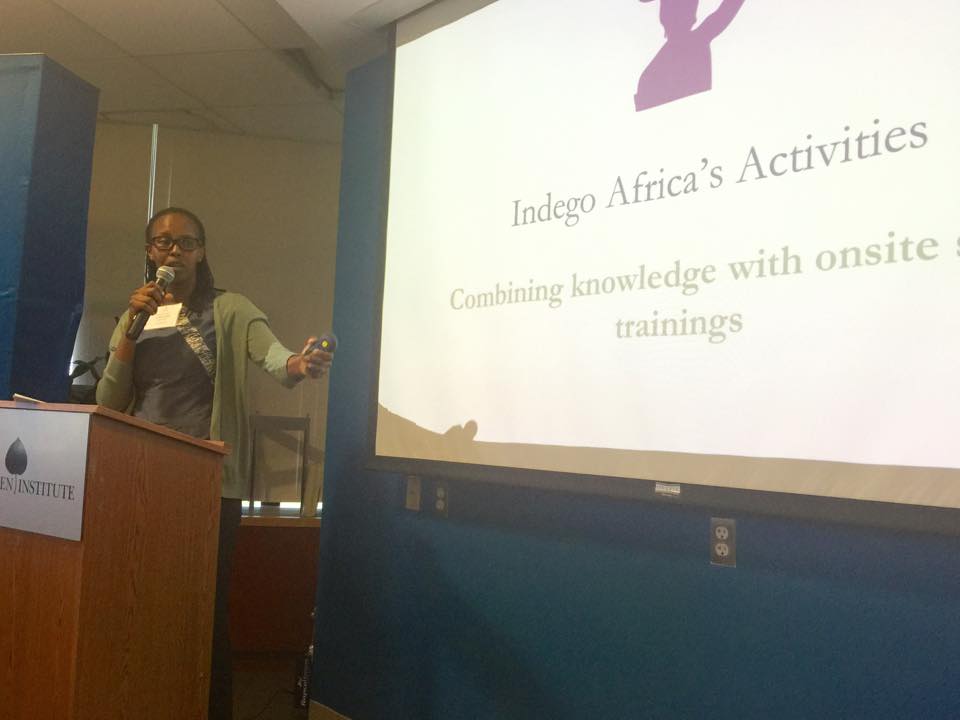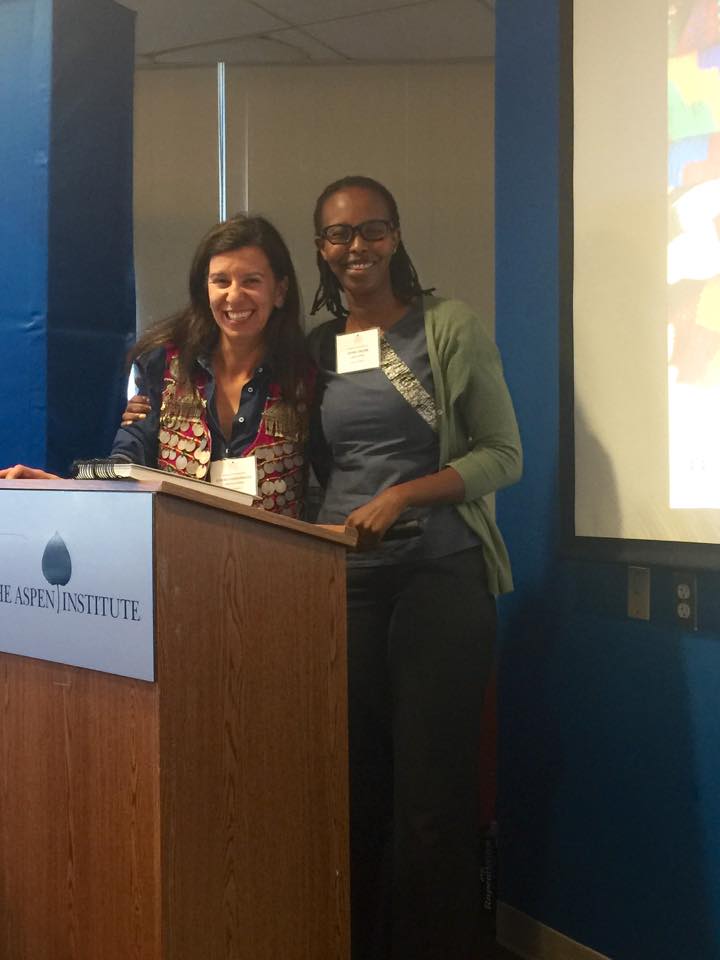When accepted to the Alliance for Artisan Enterprise, members acknowledge that they are joining a community that shares best practices and collaborates to enhance the power and potential of the artisan sector in a way that no one person or organization can alone. In this spirit, following the launch of the Global Campaign for Artisan Enterprise, Alliance members and multimedia competition finalists gathered on Friday September 11th at the Aspen Institute for a technical day of workshops and knowledge sharing.
The first workshop of the day, The Artisan Advancement Project: Ethical Compliance Assessment Pilot with Nest, west elm and ALLPA, was led by Chris van Bergen of Nest, Jennifer Gootmanof west elm and Luis Heller of ALLPA. Nest works alongside artisan partners to provide needs assessments and other capacity building services to build sustainable artisan businesses. Although Nest is not involved in any retail transactions, it sees business as a driver of change. The nonprofit has partnered with west elm and ALLPA to develop an ethical compliance assessment with hopes of scaling artisan production in a sustainable and conscious way.
From this workshop, we heard that long-term relationships, sustainability and consistency are vital in collaboration between artisan enterprises and larger retail corporations. For example, traditional compliance protocol is usually seen in a strict black and white way, but through this pilot project, the workshop leaders learned that remediation strategies cannot be pass/fail but rather need to embody a unified way of improving the current practice and moving forward together. Their advice to artisan businesses working with larger companies is to make the relationship a dialogue and to not be afraid speak up when things aren’t working out.
The next workshop, Introduction to the Alliance Artisan Value Chain Toolkit, was led by Greta Schettler of the U.S. Department of State, Peggy Clark of the Alliance for Artisan Enterprise and Natalie Deuschle also with the Alliance for Artisan Enterprise. The toolkit, which was created using a human-centered design approach, allows artisan businesses to visually analyze their value chain. Once the toolkit was introduced, workshop participants were placed in groups to experiment with using the toolkit on their own.
Participants said that completing the value chain analysis was both fun and educational. One participant said that the toolkit builds awareness of an organization’s value chain as it allows issues to be seen from different angles. Rosine Urujeni of Indego Africa, who also used the toolkit with her colleagues in Rwanda, said that the toolkit is extremely helpful in letting different stakeholders along the value chain better understand the bigger picture and processes of the value chain.
The third workshop of the day, entitled Connecting Artisans to Global Markets through Technical Support and Assurance that All Artisans Benefit: A Collaboration between Coca-Cola’s 5by20 Program and Goodweave International, was led by Nina Smith of GoodWeave and Jackie Duff of The Coca-Cola Company. Goodweave, which has created a certification for “GoodWeave” carpets made without child labor, and Coca-Cola, who sources from artisan businesses as part of their 5by20 initiative, have partnered to create an assessment framework that works for artisan business-corporate relationships.
Goodweave and Coca-Cola shared learnings from their newly established partnership, which included:
- Empathy is essential
- Top down approach is ineffective
- Assessments need to include open-ended questions not pass/fail questions
- Neither party can live in fear of one partner dropping out
The final workshop, Innovations in Business Skills Training, was given by Rosine Urujeni of Indego Africa and Despina Papadopoulos of Principled Design. Rosine explained Indego Africa’s full community approach to capacity building and their practice of exposing all employees to every part of the value chain. Next, Despina Papadopoulos shared the artisan toolkit she created. The toolkit contains an outstanding amount of cultural detail for women artisans in Afghanistan. Level 1 and 2 of the toolkit were explained as well as the holistic approach that was used to create both versions. Despina ended her presentation with a quote that encapsulated the passion and fervor of both the workshop leaders and participants that attended the Innovations Workshop day, “If you want light, you must light a fire.”
The Alliance is lighting a fire by continuing the momentum of the Global Campaign for Artisan Enterprise. Join us by signing up for the Alliance for Artisan Enterprise #ChooseArtisan Thunderclap, a social media campaign to share the value of artisan enterprise with 1 million people throughout the world. Learn more and join us today!
If you would like to participate in the Alliance for Artisan Enterprise’s future innovative workshops and events, apply to become a member. To stay up to date on the Alliance’s work, sign up for our newsletter.
